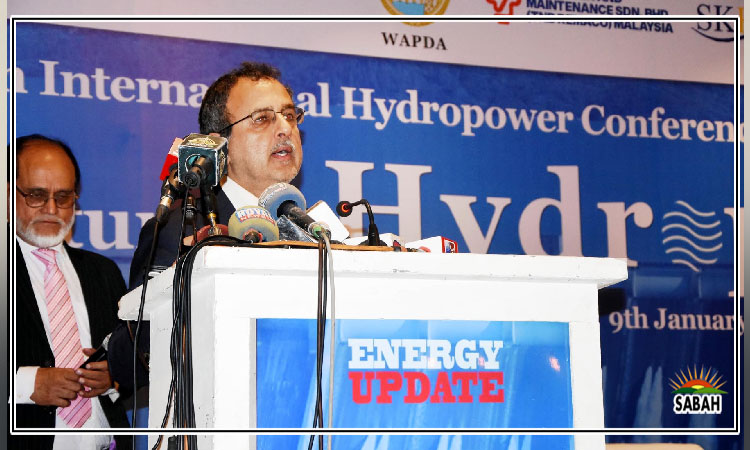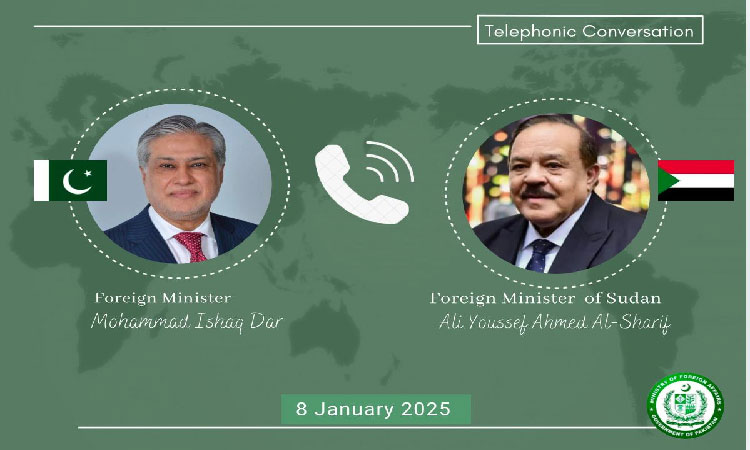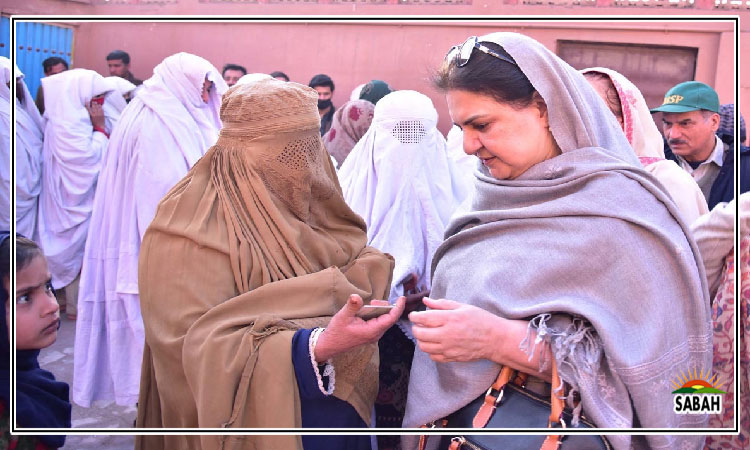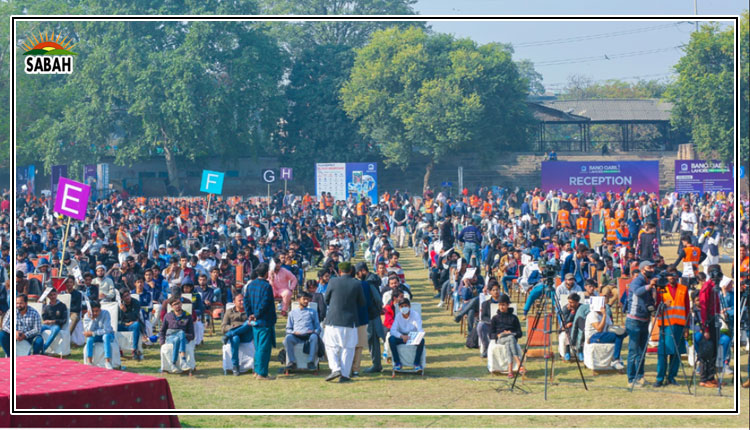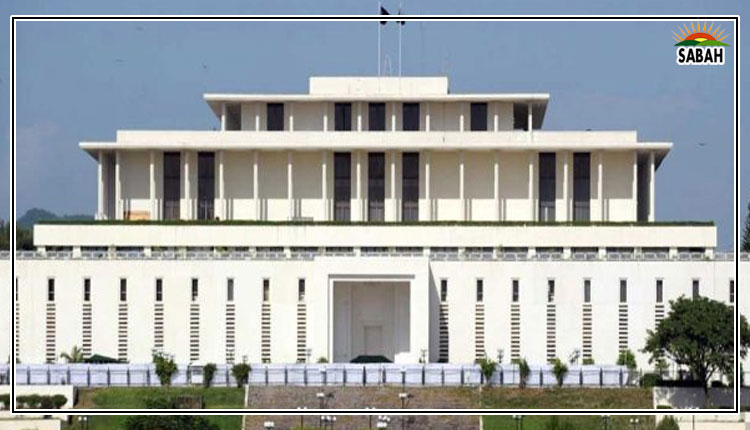Win hearts, forget the match…Jawed Naqvi
THERES a stark lesson for sports enthusiasts in the international cricket tournament that concluded in Gujarat on Sunday. Australia, which had no national flags to flaunt or drums to beat in the worlds largest cricket stadium, defeated India, outplaying it in every department of the game.
Indian supporters, on the other hand, broke every rule of propriety in cricket. They yelled jingoistic slogans, waved the Indian flag feverishly, whipped up loutish decibels to the consternation of the visitors, and at one time the management switched off stadium lights in the middle of the match for fireworks, with scant regard for how it could adversely affect the players. In so doing they may have broken a ground rule or two.
The rival captain made a quiet point about the atmosphere. The crowds obviously going to be very one-sided, Pat Cummins said in pre-match comments. But in sport, theres nothing more satisfying than hearing a big crowd go silent thats the aim for us tomorrow. Australia won with precision bowling, fine fielding and classy batting. The current Indian squad is among the most talented, and was widely tipped to lift the cup, but it was pipped at the post by a better team on the day.
The question then arises: if one can win a match or do well in the game without resorting to misplaced nationalism, then what was the zeal and fervour aimed at from the Indian supporters in the blue?
There may be a political subtext to the crowds antics, in Ahmedabad in particular. The city happens to be the pride of Gujarat, Prime Minister Modis home state.
In parroting jingoist slogans, the spectators shared characteristics with the crowd that greeted Donald Trump at the very same Narendra Modi Stadium in February 2020. One cant think of any other Indian state, leave alone another country, where a stadium resembled a politically staged show. The shabby treatment meted out to Pakistani players in the match against India reflected not spontaneous but induced frenzy, which has an echo in history.
Sports have been weaponised since goodness knows how many centuries. But lets start with Germany, where Adolf Hitler staged the Berlin Olympics to secure legitimacy for his venomous bile against Jews and other minorities. Jesse Owens, the black American athlete, disrupted the Nazi conceit of Aryan supremacy by winning four gold medals in the 1938 Games. The Western world has since exploited Owens athletic feat as an advertisement against a rotten worldview.
However, while it propagated Owens triumph ceaselessly, the West was faltering in acknowledging, leave alone repenting for, its own racist demons that havent been completely exorcised even today. Yes, we certainly excel in paying lip service to the idea. But when it comes to the crunch, murdering half a million children in Iraq could become worth it.
It would be more than three decades after Owens statement before the US would move to delegitimise racial inequality in public places, not unaware that it was nearly impossible to root out the scourge of exceptionalism that still describes its politics at home and abroad.
It peeps out of the skin off and on in other venues; for example, in the criminal British invention of a home for its refugees in faraway Rwanda. Or take the unflinching cohesion with which powerful countries stand united to endorse the ongoing extermination of Palestinian men and women and thousands of children that have perished in Gaza in an unspeakable vendetta against someones terrorist acts. Israel likens such brutal assaults on Palestinians in Gaza and West Bank inevitably with powerful support to mowing the lawn.
As politics in sports goes, the 1980 Moscow Olympics were boycotted to mark a high point in the Cold War. A communist country doing extremely well in sports threatened to crack the myth of capitalist superiority in producing champions.
Subsequently, a rigged headcount robbed China of its promised turn to host the Olympics. The Western bloc again, in a sly manoeuvre, supported Sydneys successful candidature instead. When Beijings turn eventually came, it put up an unparalleled performance of majestic grace and creativity while increasing its tally of medals.
Honduras, as we know too well, went to war for 100 hours with El Salvador over a miscued soccer match in 1969. A lesser-known conflict erupted between Saudi Arabia and Kuwait in the 1980s during a GCC soccer tournament. Years before Saddam Hussein walked into Kuwait, it was feared that Saudi Arabia would. The fault lines havent disappeared.
Cricket, one believed, had remained protected from the taint of narrow politics. One wonders if this was because the US and Russia didnt play the game. The sport in a larger sense had remained aloof from the malaise of jingoism, although cracks appeared in its wholesomeness when Kerry Packer made money the objective, and Indian managers honed it into a lucrative craft.
There were and are exceptions. The West Indies at one point saw cricket as a means to show predominantly white England, New Zealand and Australia as vulnerable to the black mans fury. Then there was the boycott of racially segregated South Africa. Otherwise, there are intense cricketing rivalries sans politics like the one between England and Australia, with their amusing if somewhat sullen history.
Cricket contests between India and Pakistan have also contributed to competition and fellowship alike. Anyone from the old guard would be wistful about the chemistry between the two sides, and at the same time, their enormous respect for each others ferocious talents. Both countries have or have had stars who commanded a following in the others territory.
Mr Modi seems to have made cricket an extension of his narrow politics, the opposite of the advice his peer A.B. Vajpayee sagaciously gave Indian cricketers heading to Pakistan. Win the matches, but also win the hearts. The spirit was missing in Ahmedabad, but, happily, not in other parts of India.
Courtesy Dawn





